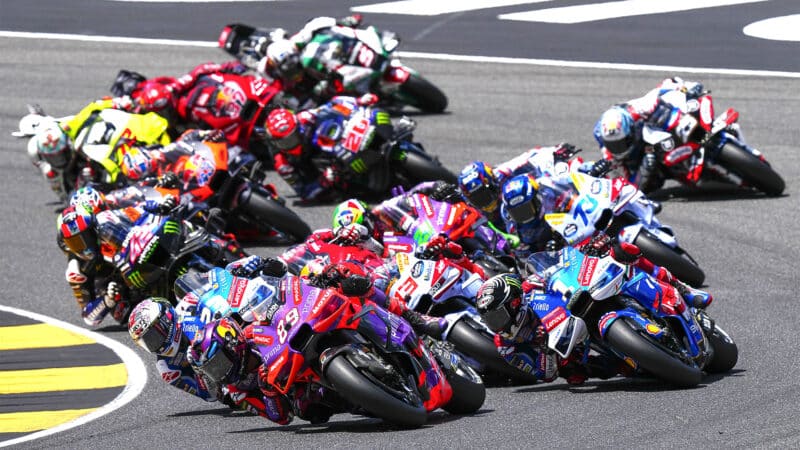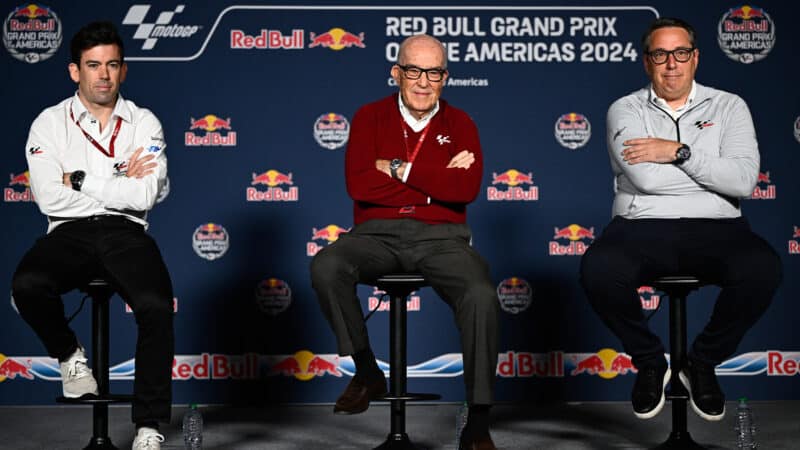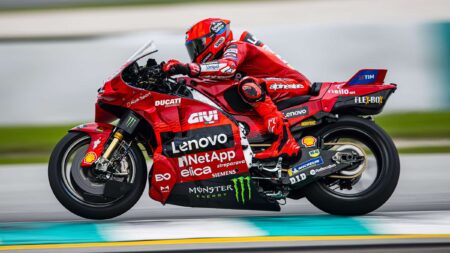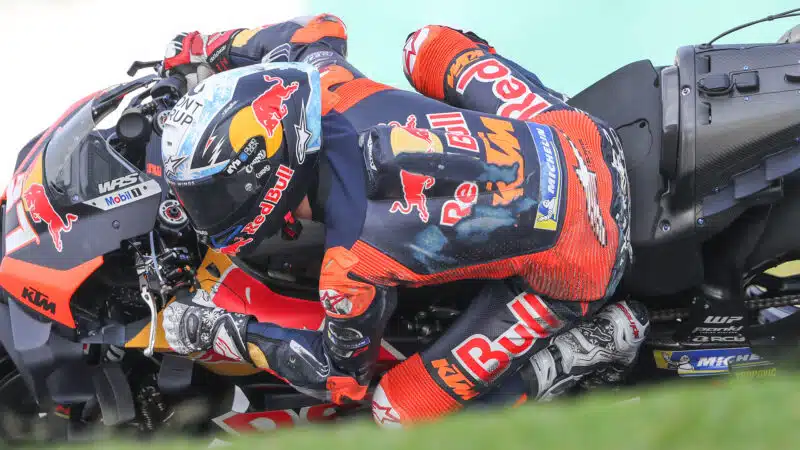This may be true, but TNT Sports (which gets its name from Ted Turner, who founded Turner Network Television in the 1980s) has already been accused of building a UK broadcast monopoly in cycling, prompting formal complaints to the UK’s Competition and Markets Authority, claiming “abuse of monopoly” and “price gouging”.
TNT now has a similar hold over motorcycle racing in the UK.
There are laws against monopolies, because monopolies are bad for consumers. Once a company gains overall control of any area of business it can use its dominant market position to manipulate prices, because consumers effectively have nowhere else to spend their money.
This is why Liberty Media has yet to be given the OK to take over Dorna Sports, the current owners of MotoGP and WSBK, even though it’s been almost a year since the American media company offered £3.5 billion to buy 86% of the Spanish company, which has owned MotoGP for three decades.
Liberty already owns the Formula 1 car series, so if it does acquire MotoGP it will own the world’s two biggest motor sport championships, which risks Liberty taking advantage of its stranglehold by increasing fees for broadcasters, which are passed onto fans, for example.
Dorna’s former owners CVC Capital Partners was denied ownership of the two properties in 2006 for this exact reason. The Jersey-based private-equity business bought Dorna in 1998, then acquired a controlling stake in F1 a few years later. The European Commission ruled that this constituted a monopoly, so CVC sold Dorna to London-based private-equity group Bridgepoint, which is now selling to Liberty.

MotoGP at Mugello last summer – there’s no doubt the championship doesn’t get the investment and sponsorship it deserves. Could Liberty fix that problem?
Dorna
The European Commission is currently evaluating Liberty’s acquisition of Dorna.
“By acquiring Dorna Sports, Liberty Media would hold the commercial rights to two of the most popular motor sports in Europe: Formula 1 and MotoGP,” says the commission’s Teresa Ribera. “We need to more carefully assess whether this acquisition could negatively affect European broadcasters, for example in terms of increased license fees, and ultimately European consumers and motorsports fans through higher prices.”
Ribera will no doubt be watching what’s going on with Liberty’s music subsidiary Live Nation Entertainment-Ticketmaster in the US.
The US Department of Justice is currently suing Live Nation Entertainment-Ticketmaster for allegedly monopolising the live music industry. The DOJ claims that “Live Nation-Ticketmaster’s exclusionary conduct and dominance across the live concert ecosystem harms fans, innovation, artists, and venues”.
No wonder there’s concern that Liberty’s ownership of F1 and MotoGP could have a similar effect across the world of motor sport.
Live Nation-Ticketmaster is also being investigated by UK regulators, over concerns that it breached consumer protection laws during its recent sale of tickets for the Oasis reunion tour. Live Nation-Ticketmaster used so-called dynamic pricing during the sale, without warning customers, so some fans queuing online found that ticket prices had more than doubled by the time they’d reached the front of the queue, because the tickets were “in demand”.
The European Commission will also investigate the potential benefits of Liberty buying MotoGP.
“We will at the same time openly consider any substantiated claims by the parties about possible benefits this acquisition might bring, for fans, the industry and for consumers,” adds Ribera
Liberty believes it will get the green light from the commission.
“We are confident this transaction will benefit MotoGP’s business, fans, viewers and the broader motorcycle industry,” says a Liberty statement. “Market participants have widely recognised the benefits of the transaction.”

Dorna CEO Carmelo Ezpeleta (centre), chief sporting officer Carlos Ezpeleta (left) and chief commercial officer Dan Rossomondo presenting the Liberty deal last year
The Liberty deal is indeed very popular within the MotoGP paddock, because most stakeholders believe the company will make a better job of promoting and growing the championship, because it’s done just that in F1. For example, F1’s YouTube channel has gone from 300,000 to seven million subscribers, thanks to Liberty spreading the word.





